Good News! 30 Positive Environmental Stories from 2022

Get news, updates, & event Info delivered right to your inbox:
Good Environmental News Stories From 2022 That Will Make You Smile
Happy Treecember everyone! Together we made it through 2022. Somehow it still feels like 2019. But here we are wrapping up 2022 like the past few years haven't flown by. There were innovations in favor of nature AND lots and lots going on for the trees. Beyond the trees we have many stories to tell about wildlife, innovation, policies, and stories just too good not to share! Let's say goodbye to 2022 with a big thank you for all of the positvi-TREE it brought us!
Trees & Reforestation
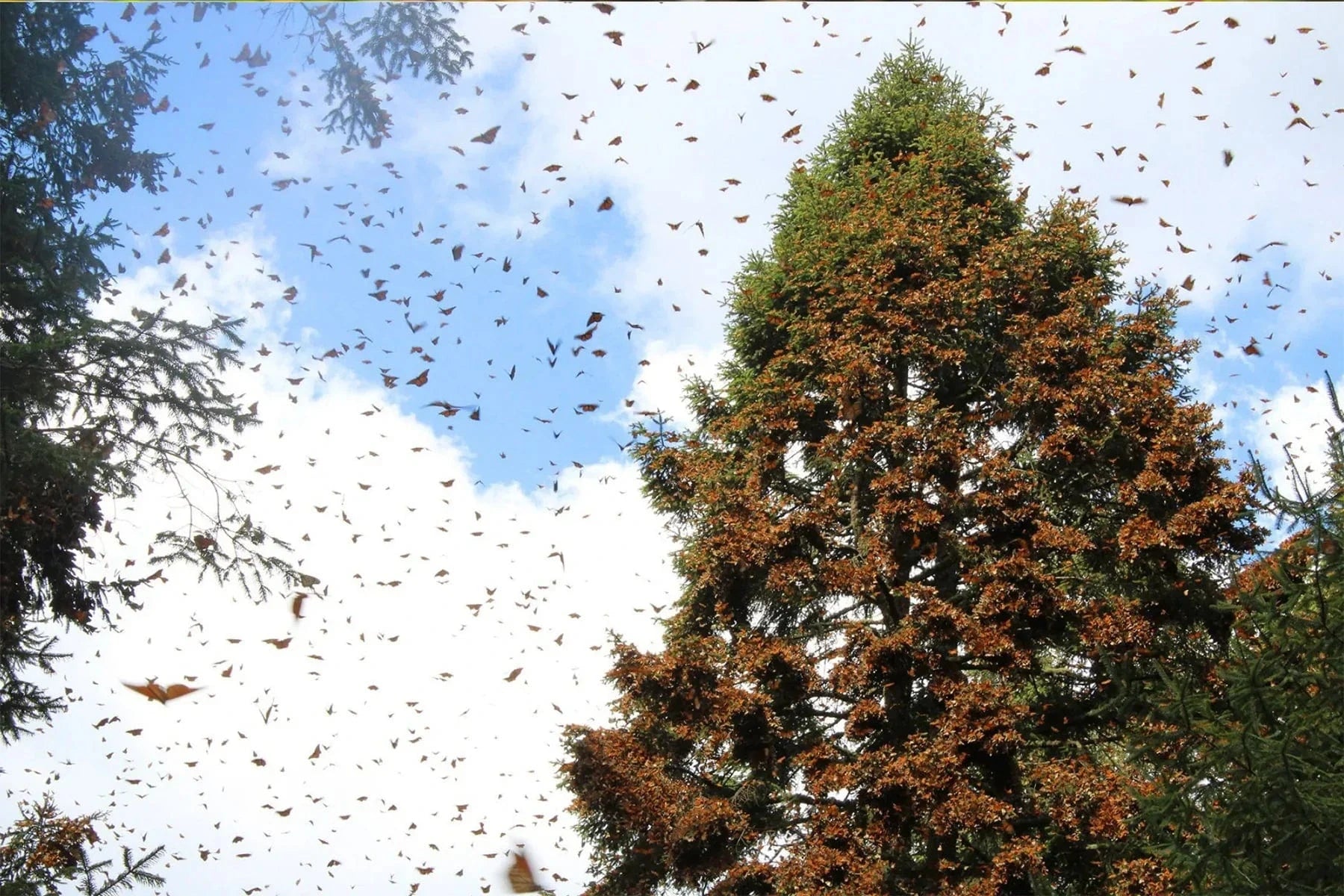
We're Planting 900,000Trees For The Monarch Butterfly This Year
This fall and winter, we'll be planting over 900,000 oyamel pine and native evergreen trees for Monarch butterflies in Mexico. These forests provide the unique climate and shelter that eastern monarch butterflies need after their approximately 3,000 mile migration south. In fact, the size of the eastern migratory population is measured by the number of hectares of oyamel fir and native pine forest that they occupy. Here, they rest and conserve their energy over the winter months, until seasonal changes trigger a new migration back north to lay eggs and start the cycle anew.
One Tree Planted Has Committed to Planting 25 Million Trees Across Australia by 2025
In partnership with AstraZeneca, the Global EverGreening Alliance and Greening Australia, we will plant 25 million trees across Australia by 2025. One of the largest-ever privately funded restoration projects in the country, it will cover approximately 20,000 hectares of land. That's equivalent to one-quarter of the city of Canberra in size, and will create habitat for dozens of endangered species. Establishing the 25 million trees will also sequester approximately 4.25 million tonnes of carbon dioxide over a 25-year crediting period, equivalent to the emissions produced by 920,000 cars running for an entire year.
The Seed Forest Alliance Has Launched
Research has shown that a decentralized, global seed bank network would drastically improve restoration, preserve threatened plant species, sustainably expand native seed supply systems and benefit local communities. Some key findings include: there are currently 410 seed banks across 96 countries that store native species, but more are needed in almost all countries. Establishing larger regional seed banks could help meet the need for seeds more efficiently. While the United States, Australia, Brazil and China have the most seed banks, they also need the most new seed banks to meet their restoration potential over the next decade. This alliance will focus on seed supply and connecting forestry groups with the funding they need!
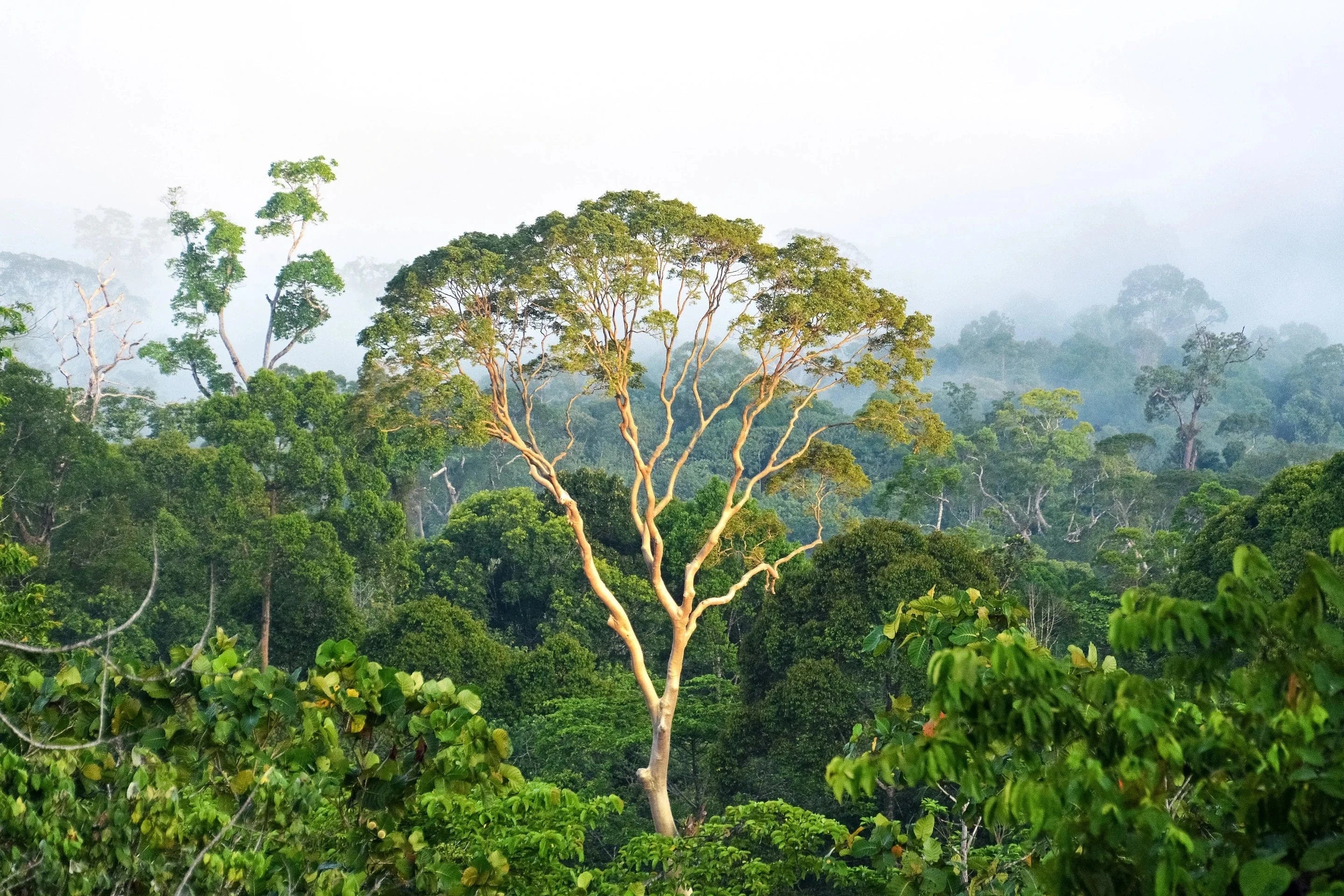
There Are More Tree Species Than We Thought
Researchers have been working tirelessly on the ground in 90 countries to retrieve data on 38 million trees. Their study found that there are about 14% more tree species than previously thought. “It is a massive effort for the whole world to document our forests,” said Jingjing Liang, a lead author of the paper and professor of quantitative forest ecology at Purdue University in Indiana, US. “Counting the number of tree species worldwide is like a puzzle with pieces spreading all over the world. We solved it together as a team, each sharing our own piece.”
Giant Sinkhole Found In China Has Hidden Forest With Ancient Trees
Cave explorers recently found a giant sinkhole deep within a forest in China — and inside the sinkhole, they discovered a hidden forest! The sinkhole has been measured at approximately 5 million square meters and contains 3 undiscovered caves. Researchers believe that in addition to the 130 foot tall trees, there may be undiscovered plant and animal species among the underbrush.
1.5 Million Fruit Trees Planted Across India For Sustainable Agroforestry
Despite ongoing challenges like local lockdowns and restrictions on movement, our amazing on-ground partner planted a total of 1,533,930 fruit trees to restore 1,553 hectares of land in India last year. The plantings were distributed across the states of Uttar Pradesh, Madya Pradesh, Maharashtra, Haryana, Rajasthan and Uttarakhand, India. We also built nurseries in strategic areas of Haryana to reduce transportation costs and improve seedling acclimatization. As the trees grow, they'll help alleviate hunger and poverty while fighting pollution and climate change across rural India.
Restoring Legacy Mined Lands in Appalachia
In collaboration with Green Forests Work, One Tree Planted is reforesting about 800 acres of formerly mined lands in Pennsylvania, and we expect this area to sequester about 80,000 metric tons of CO2 after 50 years. This work is collaborative and brings many different organizations and interests together. The Appalachian region has some of the richest temperate forests in the world. Coal mining has been an economic driver since the 1700's and 1800’s, but has wrought major impacts on the environment and local communities, including habitat loss, water and air pollution, and safety issues. This initiative will help bring life back to degraded land.
One Tree Planted Has Launched The Grove!
Introducing: The Grove! We've been working behind the scenes for some time now, and we're so excited to share this with you. The Grove is exactly what it sounds like: a special group of individuals that are passionate about giving back to the environment through a monthly giving program. And just like the trees that form a grove in nature, their support helps restore ecosystems for biodiversity, empower communities, rebuild after fires and floods, restore degraded areas, and more.
Plant A Tree Day Was A Huge Success
Our fifth annual Plant a Tree Day fell on Wednesday, September 28th, but planting took place through 104 events in 29 countries throughout the fall planting season. Now that all of the events have wrapped up, we're proud to share everything that our partners and volunteers have accomplished through Plant a Tree Day 2022! To recap: We supported 104 events in 29 countries! 6,091 volunteers were engaged.Nearly half (3,090) of these were youth volunteers. We planted a total of 39,558 trees and 6,144 shrubs. We also propagated 1,980 seeds and distributed 7,450 trees to local communities. We worked with 91 on the ground partners.
Wildlife
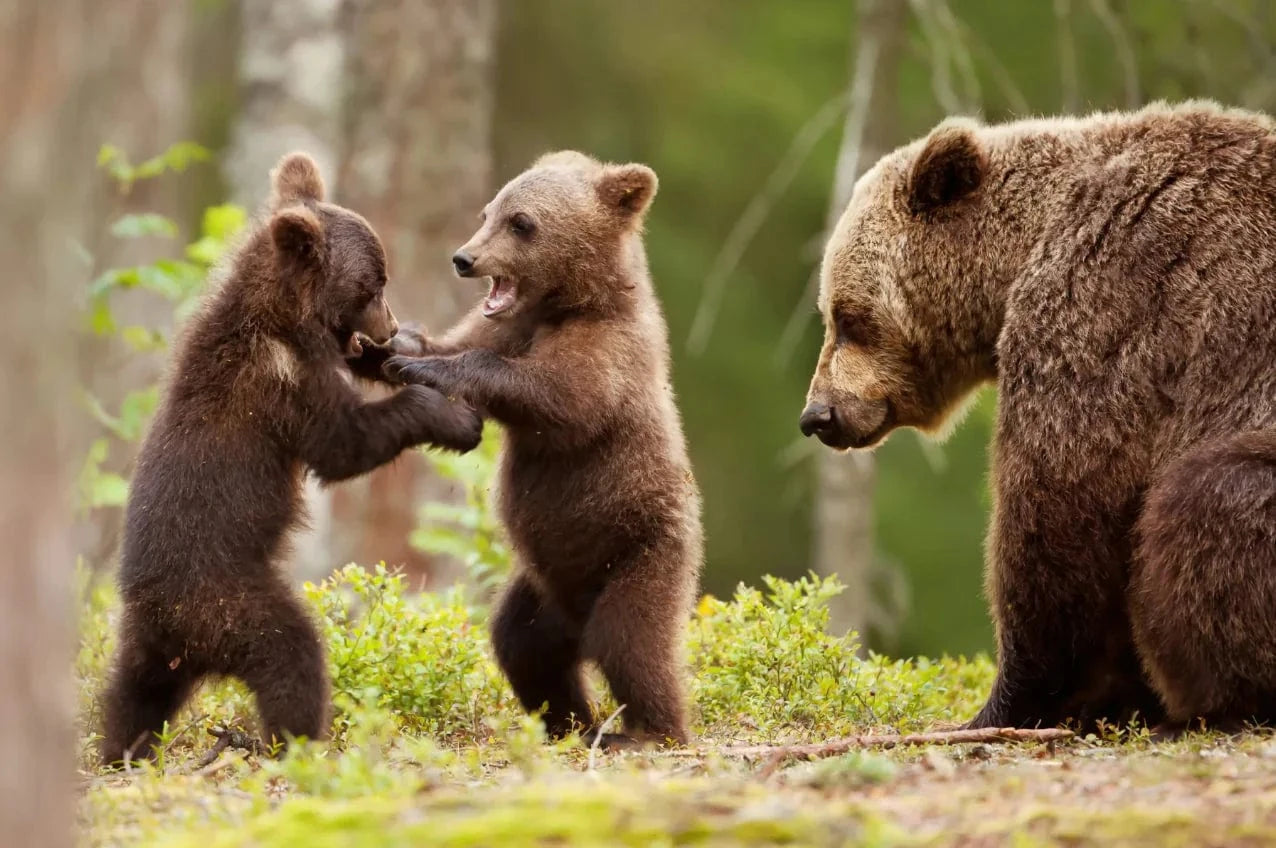
Bear Hibernation Sparks Hope For Medical Breakthroughs
Researchers say that someday, humans may be able to recreate the way that bears hibernate, which would be particularly beneficial to humans that are confined to long-term bed rest. If we were able replicate this biological wonder, it could help prevent the worst effects of long-term immobility, which include muscle breakdown and bone thinning. And the health implications don't stop there: in March, a study was proposed to test whether using a drug to induce a hibernation-like state could preserve brain function in stroke patients. Researchers are also hopeful it could help heart attack patients, and those diagnosed with Parkinsons or Alzheimers disease.
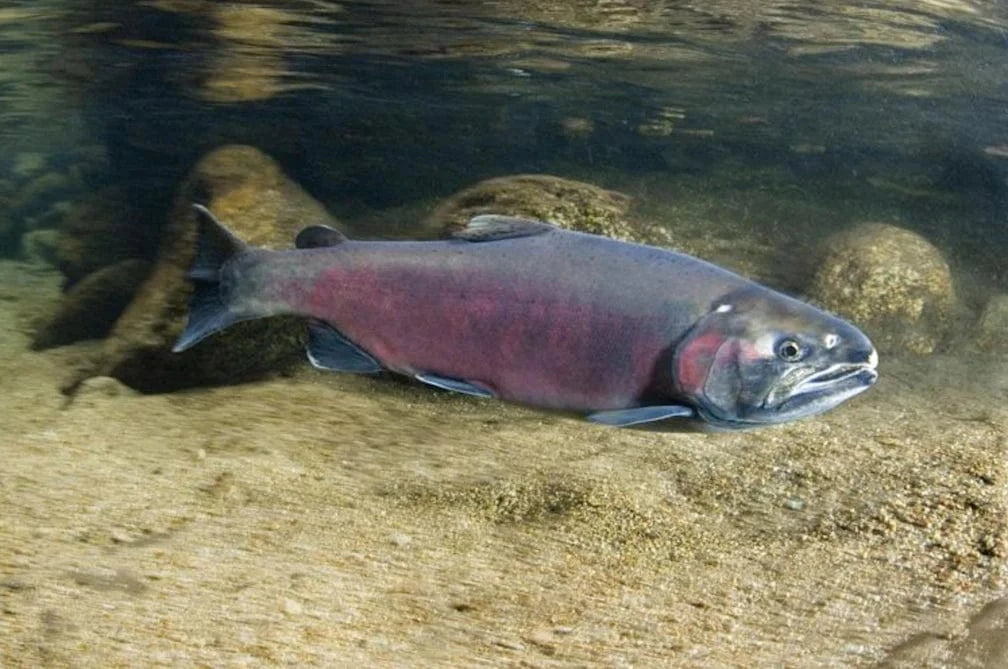
Endangered Salmon Return to Bay Area Streams
After an 18 year absence, endangered salmon have returned to a Bay Area stream! Coho salmon have not been spotted in the Montezuma Creek since 2004. Thanks to conservation efforts like dam removals, installation of fish-friendly culverts and more, the fish were able to flow through previously impassible areas to reach their ancestral spawning grounds when heavy January rains dramatically increased water flows!
Bison Restoration On Tribal Lands Has Cultural and Ecological And Economic Benefits
Our national mammal, the bison, was nearly hunted to extinction in the early 1800s. As a keystone species, bison help create habitat on the Great Plains for many species, including grassland birds. As they forage, they aerate the soil with their hooves, which aids in plant growth, and native seed dispersal. Bison restoration helps secure the food supply of Indigenous People of the plains. According to South Dakota State University, “In rural Native American communities, poverty is two to three times higher than in white rural communities, and, despite much of the grasslands being used for agriculture, Native Americans are twice as likely to be food insecure than white people and are 25% more likely to remain food insecure in the future.”
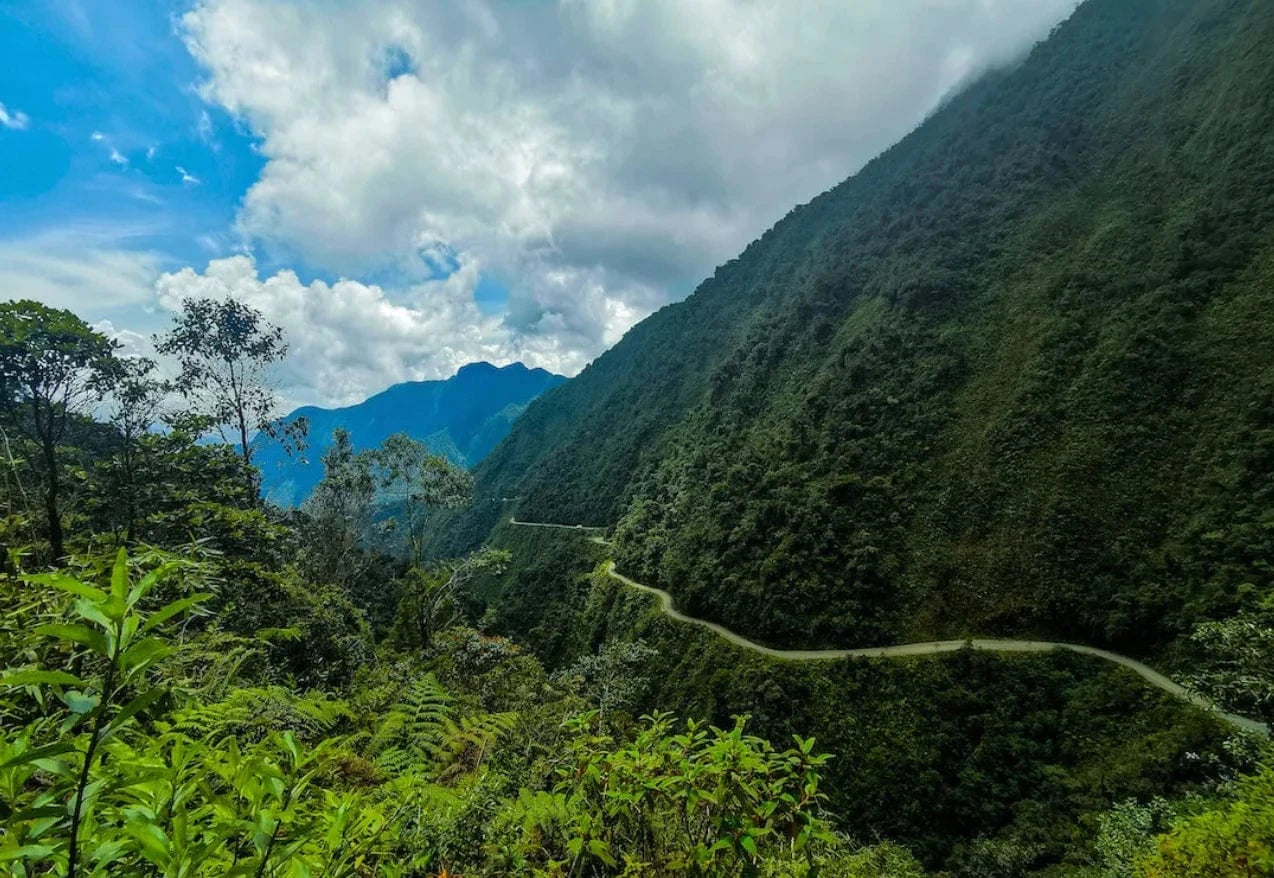
Death Road Is Now A Safe Place For For Wildlife To Return
In Bolivia, there is a road that was once dubbed “Death Road”. This narrow strip, which leads into The Yungas, used to claim an average of 300 lives each year. In 2007, a safer road was constructed and traffic has dramatically dropped. The reduced traffic has allowed wildlife to return. Scientists placed cameras around the road to capture all the species that have returned. Over 15 species of mammals and 94 species of birds have been spotted on the cameras so far!
European Mink Found Refuge On An Estonian Island
At one time, the European mink (Mustela lutreola), could be found almost everywhere in Europe. However, populations dwindled over time, and scientists have found it difficult to pin down exactly what caused their disappearance. In an effort to re-populate, captive minks were bred on Hiimuaa island, separated from other species of mink. It took a while for the reintroduction to become successful but the numbers have stabilized to around 160-250 minks populating Hiiumaa in autumn!
Innovation
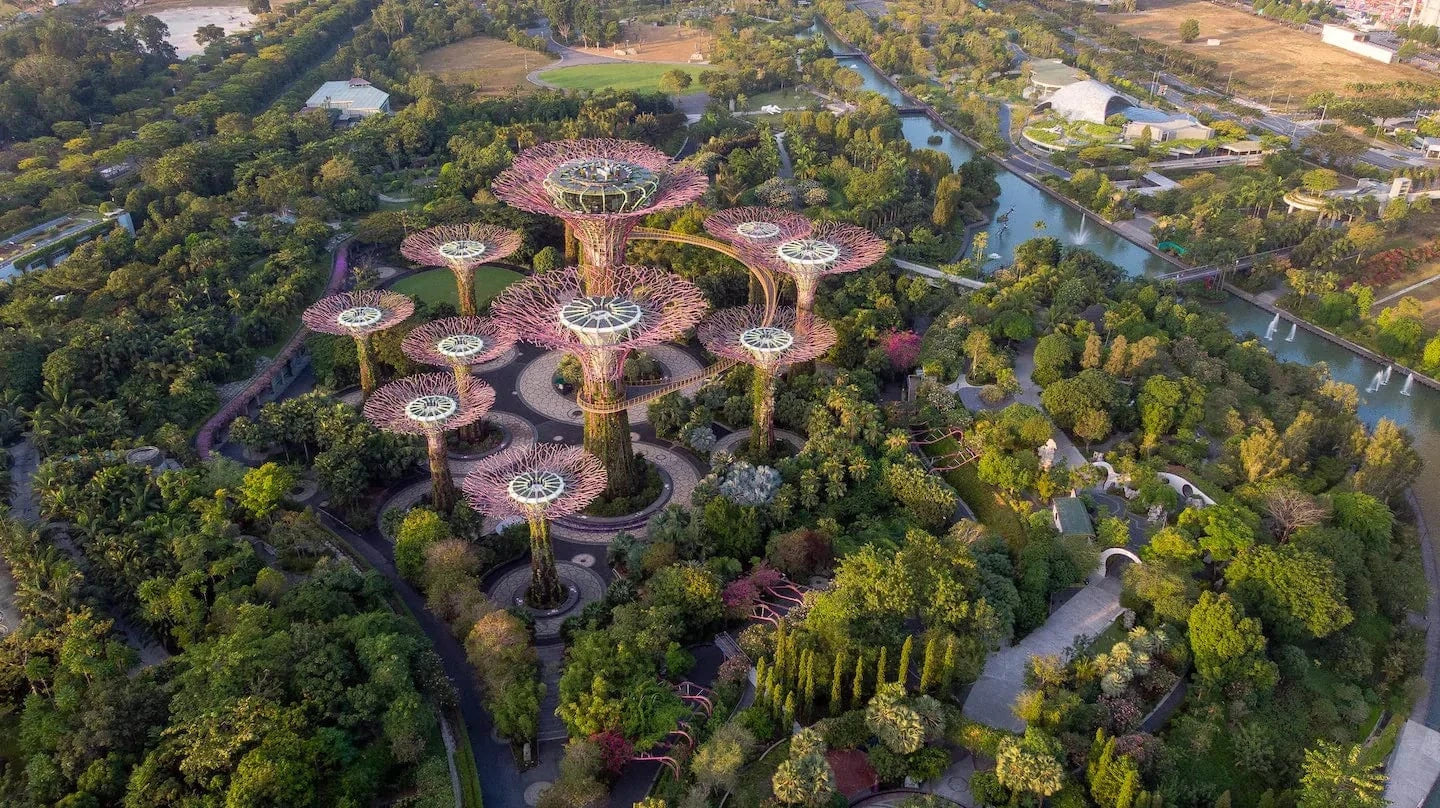
Singapore Is Pioneering The Way To Creating A Greener Urban Environment
With climate change at the forefront of the global conscience, new solutions are arising every day that can make a big impact. Case in point: urban planners and architects in Singapore are integrating more and more nature into their city. They're doing everything from implementing more greenery into structures via green roofs to creating cascading vertical gardens and verdant walls. The benefits are endless! This green way of living provides benefits like cooler and cleaner air, better mental health, pockets of urban habitat, reduced temperatures, even carbon absorption, and more.
Nature Inspired Concepts For Turning Carbon Dioxide Into Clean Fuels
While we can think of a few nature-based solutions (planting trees, anyone?) that absorb carbon and filter air pollutants, researchers have developed a new concept that would not only convert carbon dioxide into clean air and sustainable fuels, but would also not produce any waste. Much of the current renewable energy sources can come at a wasteful cost, but new research has improved fuel production efficiency by up to 18X in a laboratory setting, proving that this process can be replicated. Cambridge researchers worked in partnership with a team from the Universidade Nova de Lisboa in Portugal to improve efficiency through electrolysis and enzymes. Long and confusing story short, technology might be catching up with nature to combat climate change!
Block Island Celebrated 5 Years Of Clean Energy
After 89 years of dependence on generators, Rhode Island's iconic Block Island fell silent in May of 2017. In the years since the shut down, the island has shifted to wind power. Due to demand by opponents of windmills, studies were conducted to ensure the safety of marine life. The result? Marine life improved and the turbines were determined not a hazard. After 5 years of clean energy, the community of Block Island is proud of their shift to renewable energy, and the legacy they will leave behind.
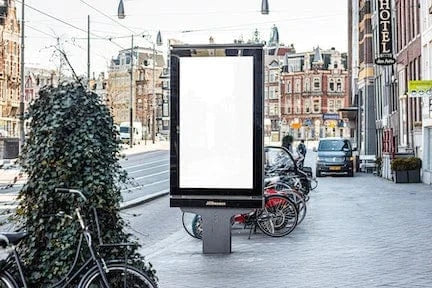
Meat Advertising Banned In Netherlands
The Dutch city of Haarlem will be the first city in the world to ban any advertisements for meat in all public places. This is part of a concentrated effort to reduce meat consumption and the greenhouse gasses that are associated with its production. They're hopeful that these efforts will help sway food choices away from meat starting in 2024. This ban will take time to go into effect in order to honor contracts that companies may already have in place. As of yet, there has been no clear answer for those wondering if advertisements for sustainable meat alternatives will also be banned.
New Technology Could Help Energy Independence
Renewable energy is on the rise, and many people are trying to become more environmentally friendly in their own homes and businesses. Solar panels on your rooftop are now the best choice for clean energy, but there’s currently a rooftop wind device on the rise that could be a game changer for homes and businesses. Aeromine is a bladeless wind device that sits on a rooftop. Because it’s bladeless, this device is safer for birds and significantly quieter than wind turbines. This device can be paired with solar panels to achieve full energy efficiency and independence!
Policy
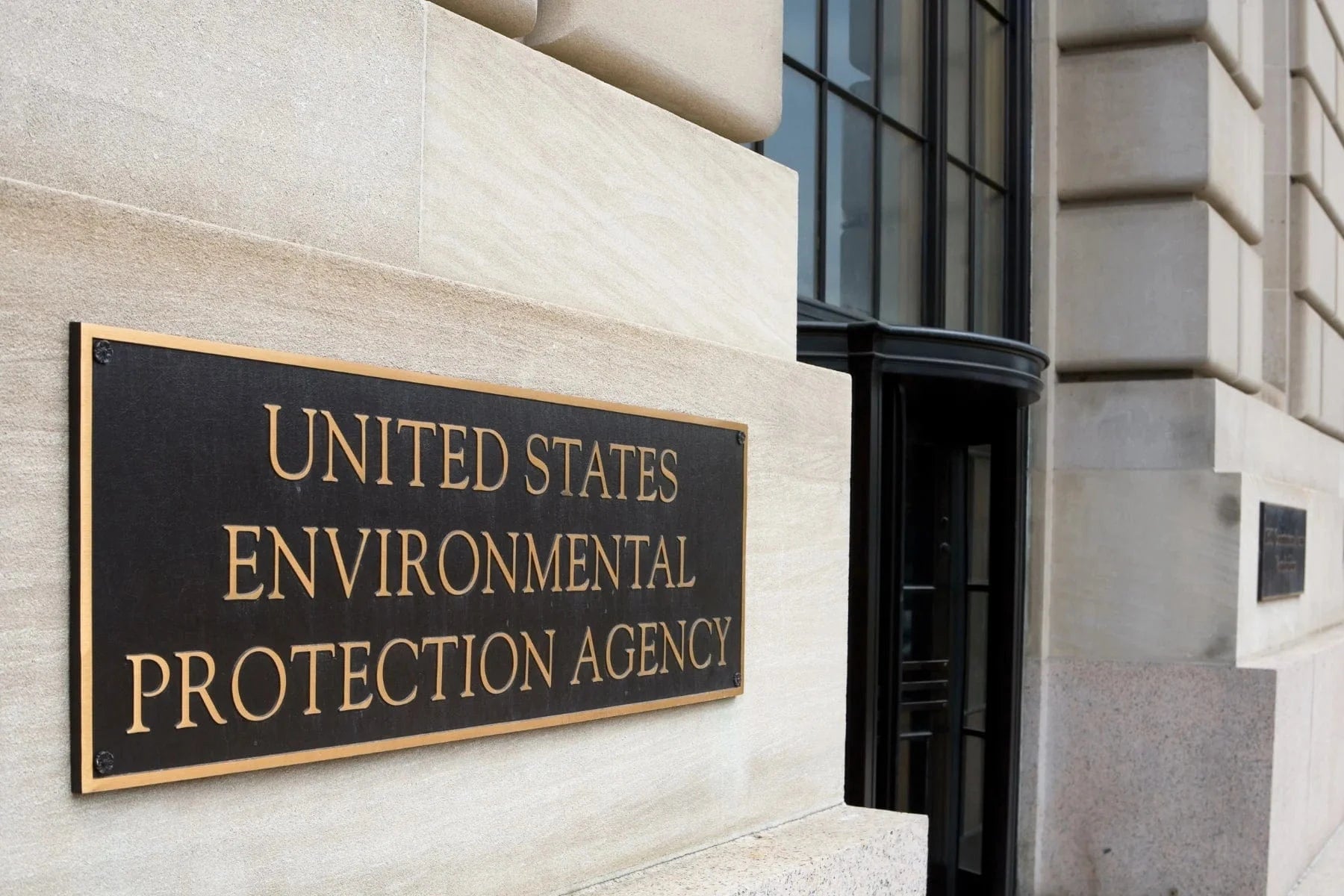
U.S. EPA Launches Environmental Justice Office
On Saturday, the U.S. Environmental Protection Agency launched a new office that will be laser-focused on the needs of minority communities that have historically been overburdened by pollution. This office will also oversee the $3 billion in environmental justice grants that were created by the recent passage of new climate legislation. Of the office, EPA Administrator Michael Regan said "With the launch of a new national program office, we are embedding environmental justice and civil rights into the DNA of EPA and ensuring that people who’ve struggled to have their concerns addressed see action to solve the problems they’ve been facing for generations,”
Inflation Reduction Act Passed
History was made with the Inflation Reduction Act, which will invest approximately $437 billion dollars into climate change and energy security. While this bill has been in the works for over a year, it was necessary to restructure it on both sides of the aisle in order to pass it. $60 billion will be put towards communities and environmental justice, and it aims to cut down on the country’s carbon emissions by 2030.
Washington Becomes First State to Mandate Clean Energy
Washington is leading the way towards a greener future by becoming the first state to require new buildings' to be equipped with all-electric space heating and hot water systems. Under this revised energy code, most new commercial and multi-family homes will need to install electric heat pumps. These pumps are an extremely energy-efficient technology that can extract heat from the outside air and pump it inside to provide space heating (even on very cold days). They're also able to run in reverse and provide cooling during the summer. Pretty amazing if you ask us!
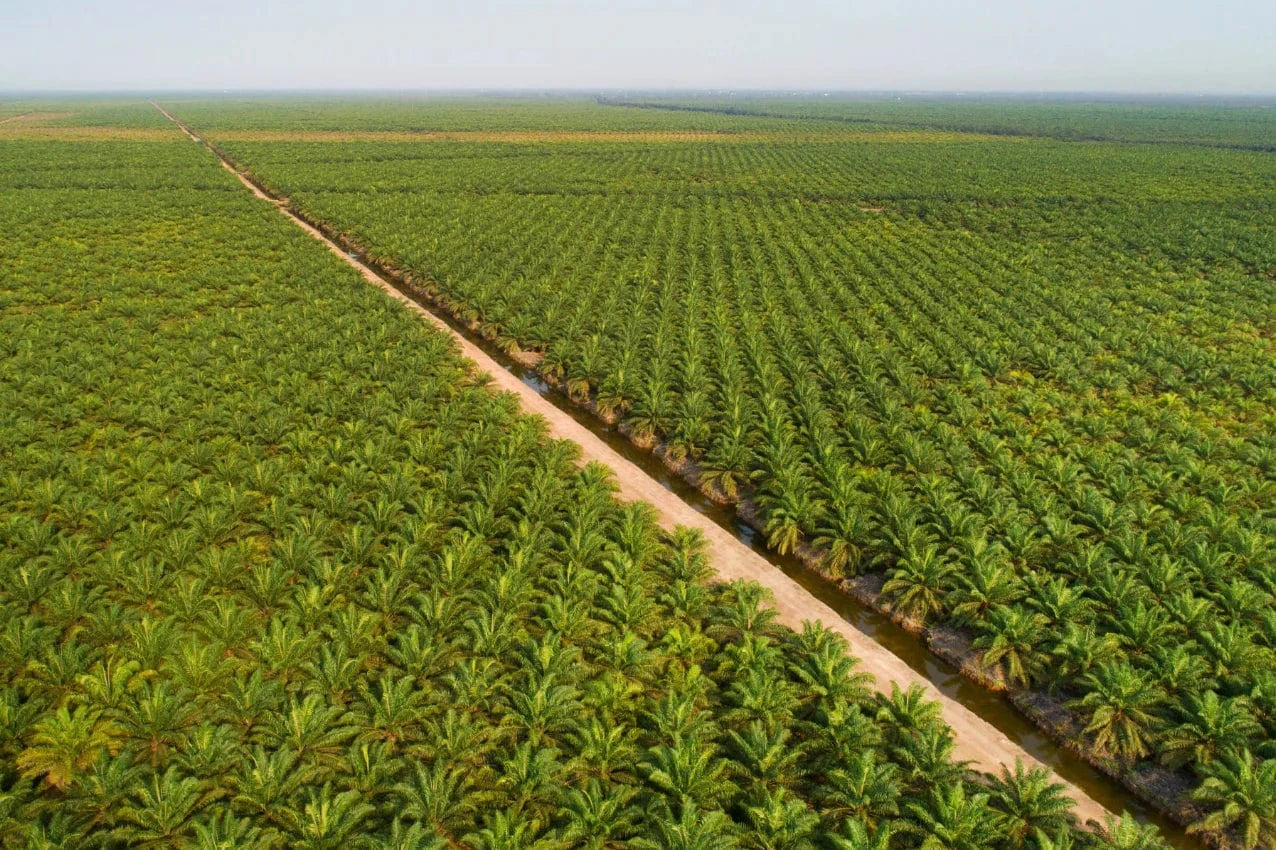
Farmers Hopeful Palm Oil Ban Will Restore Land
Palm oil, a ubiquitous ingredient in processed foods around the globe, is also the primary oil used for cooking in Indonesia. In recent months, there has been domestic shortage of this important ingredient, prompting an indefinite ban on its export that began on April 22nd. This ban has elicited mixed reactions, as Indonesia produces 59% of the global palm oil supply, with detractors claiming that it will negatively affect the country's economy and drive prices down, which will hurt all producers. Still, some small farmers are hopeful this ban will reform an industry that's focused primarily on exporting to global markets — and turn its attention back home, where it's responsible for intense deforestation and forest fires in the Asia Pacific.
LA Bans Single-Use Plastic For Unincorporated Areas
Starting on May 1st, 2023, restaurants, stores and other establishments in unincorporated areas of LA county will be restricted from using single-use plastic. As of now, the county is the largest government entity that has taken action against single use plastic food ware. The thousands of restaurants serving nearly 1 million people have been given a year to comply, and will be subject to fines of up to $1000/year if they don't. This is a major win for marine and human health, and we hope that other counties will follow suit!
EU Lawmakers Back Effective Ban On New Fossil-Fuel Cars From 2035
The EU is proposing a shift towards electric vehicles via a ban that will effectively cut sales of gas-powered vehicles by 100% from 2035. This timeline has been set to accommodate new cars that are hitting the roads this year, and will likely last up to 15 years. The official vote will occur in the next few months, after which individual countries will set their own standards. To support this measure, additional charging stations will be installed across the EU.
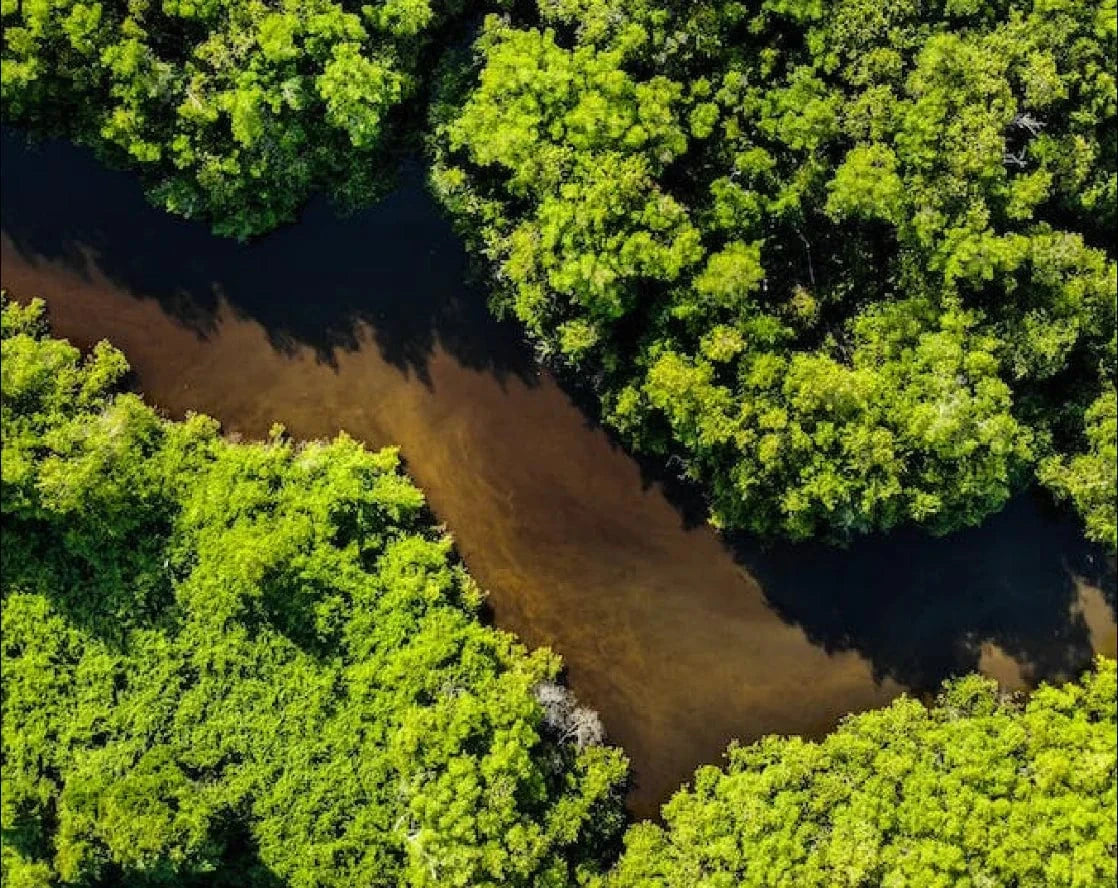
The Amazon Has Secured A Historic Victory
The newly elected president in Brazil, Luiz Inácio Lula da Silva, has publicly committed to over 20 policies tackling environmental issues, including a pledge to work towards "zero deforestation" in the Amazon. This is critically needed because it is estimated that 13.2% of the original Amazon forest biome has been lost due to deforestation and other human causes. We are thrilled to hear this news and will continue our efforts to support reforestation in the Amazon.
Oslo Becomes First Capitol City With All-Electric Public Transport
Oslo is ahead of the curve when it comes to public transportation. Norway’s capital city is well on the way to becoming the first with all-electric public transportation. That means, no more diesel buses! This eco-friendly switch will also help reduce noise and air pollution throughout the city, improving the community for people to enjoy for years to come. As a global leader for clean transit, Oslo is inspiring cities around the world, showing them that clean transportation can happen!
Too Good Not to Share
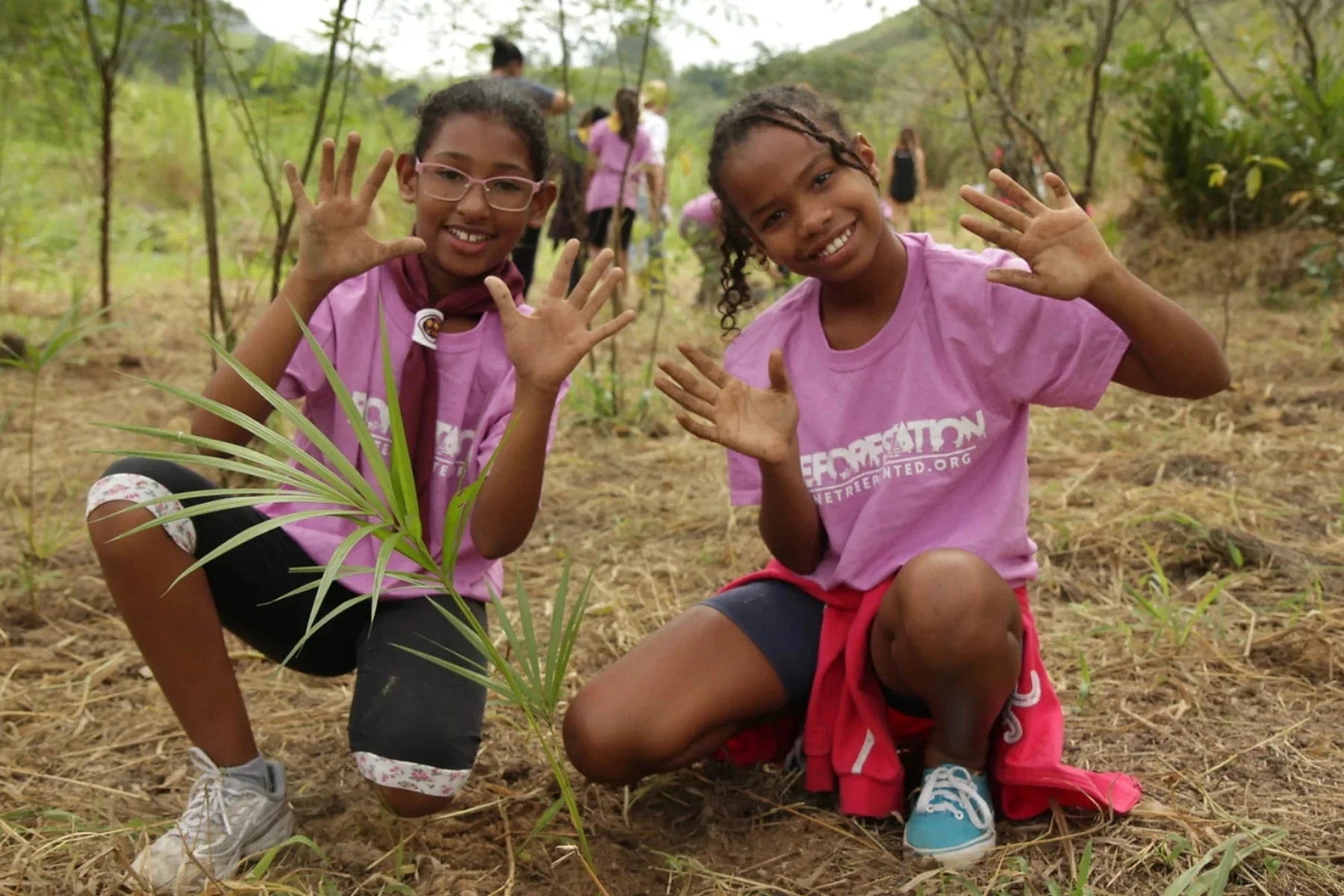
Nature's Projects Boosts Young People's Mental Health
It’s no secret that young people have been spectacularly leading the climate fight for years. And while the fight has surely been taxing, a new report shows that nature projects have the ability to boost the mental health of our youth while improving the overall community. Participants of these nature projects in the UK cited a boost in confidence and overall well-being. They also noted that the projects helped them see that their actions truly do make a difference. You can help your community while helping yourself by getting involved in nature projects near you!
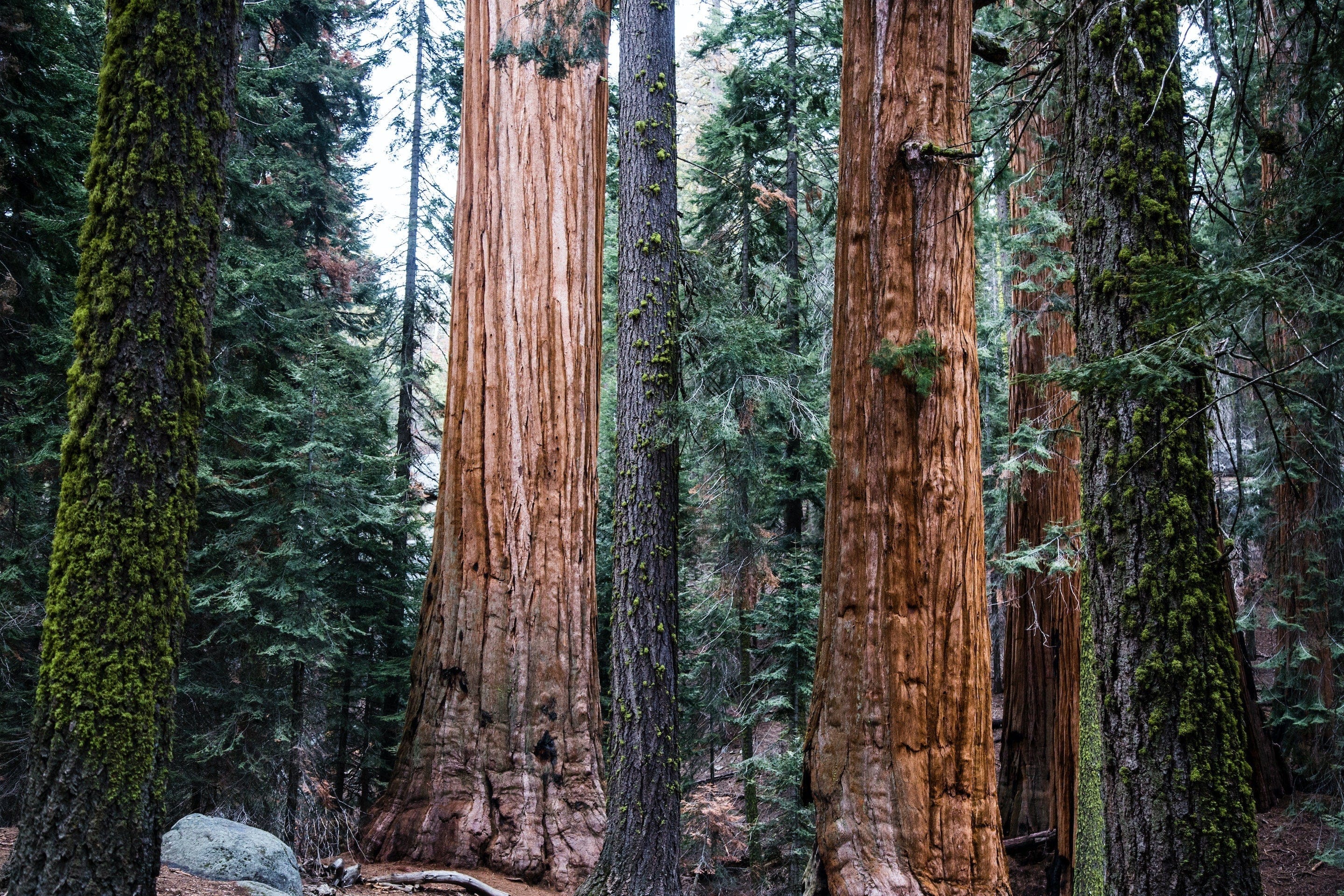
A Redwood Forest in California Has Been Permanently Returned to Its Indigenous Tribes
Over 500 acres of California redwood forest has been returned to Indigenous tribes that it was taken from generations ago. The land, formerly known as Andersonia West, has been donated to the Intertribal Sinkyone Wilderness Council. The council consists of 10 Northern California tribal nations. The transfer will allow the tribes, who are Indigenous to the land, to not only reclaim it but also rename it. "Renaming the property Tc'ih-Léh-Dûñ lets people know that it's a sacred place; it's a place for our Native people," Sinkyone Council board member and tribal citizen Crista Ray said in a statement. "It lets them know that there was a language and that there was a people who lived there long before now."
World Record Is Broken For Most Plants Watered Simultaneously
On Earth Day, 799 people from 12 different organizations joined together to break a world record! For 20 seconds, all 799 participants simultaneously watered individual plants while live on The Today Show — earning them world record for most people watering plants simultaneously. The One Tree Planted team was proud to account for 62 of those world record breakers!llll
I think we've got this positivi-TREE thing down! So long 2022 and cheers to a happy New Year! Hungry for more positivity? We've got plenty more good news stories from the past year. And if you're feeling really optimistic about 2022, consider planting trees today!
Get news, updates, & event Info delivered right to your inbox:
Related Posts
Sustainable Diet Tips: How to Eat Healthy While Protecting the Planet
13/01/2026 by Meaghan Weeden
Agroforestry Explained: Principles, Benefits, and Case Studies
08/01/2026 by Meaghan Weeden
Plant Your Resolution: Making a Global Impact With The Grove
01/01/2026 by One Tree Planted
Popular On One Tree Planted
How to Reduce Waste: 21 Practical Zero Waste Tips for Everyday Living
23/12/2025 by Meaghan Weeden
Inspirational Quotes About Trees
16/12/2025 by Meaghan Weeden
The 9 Oldest, Tallest, and Biggest Trees in the World
11/12/2025 by One Tree Planted
Fundraising Disclosures

Be Part of the Restoration Movement
The Grove is more than just a monthly giving program: it's a vibrant community of individuals who are dedicated to reforestation and environmental restoration on a global scale.





